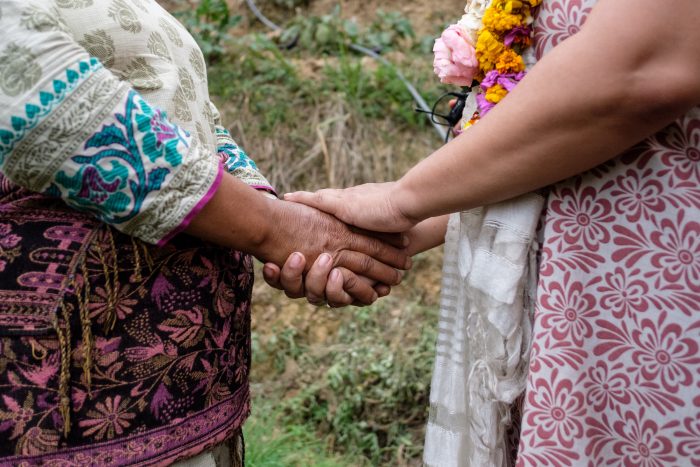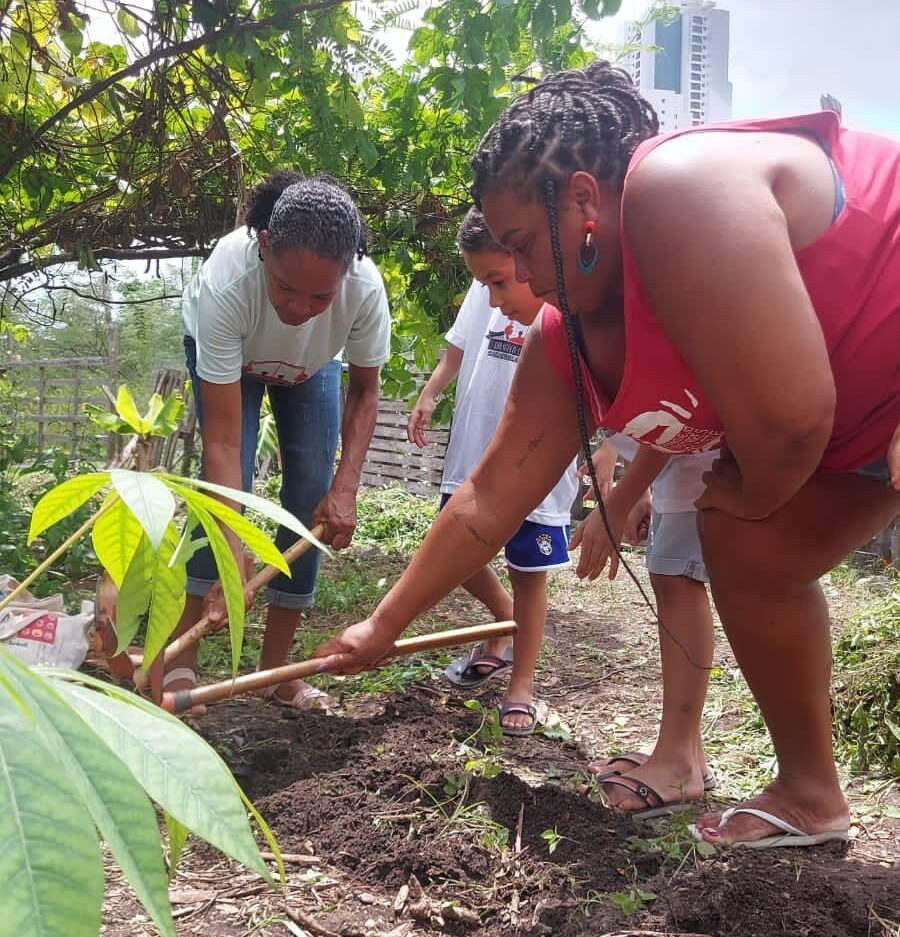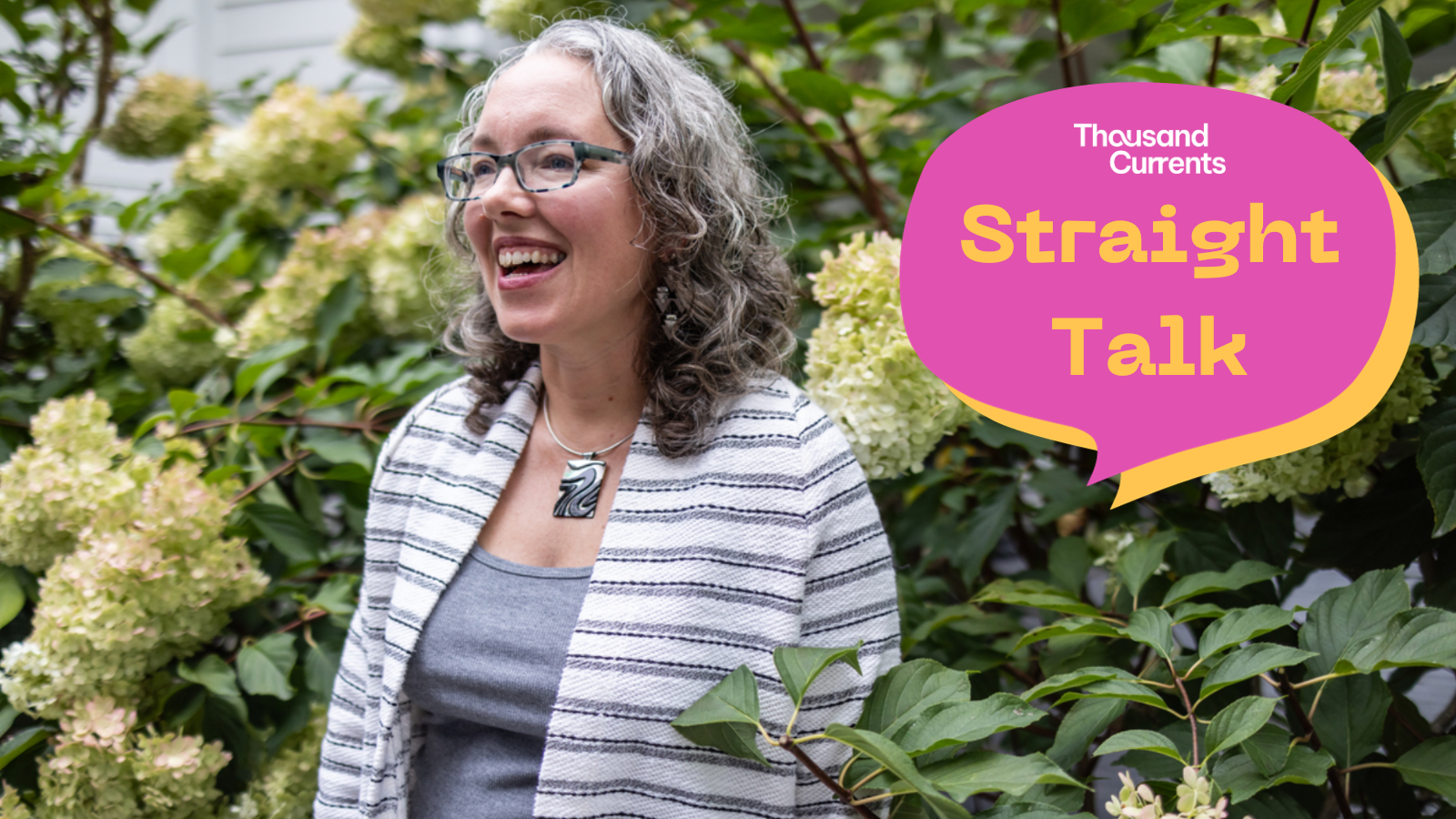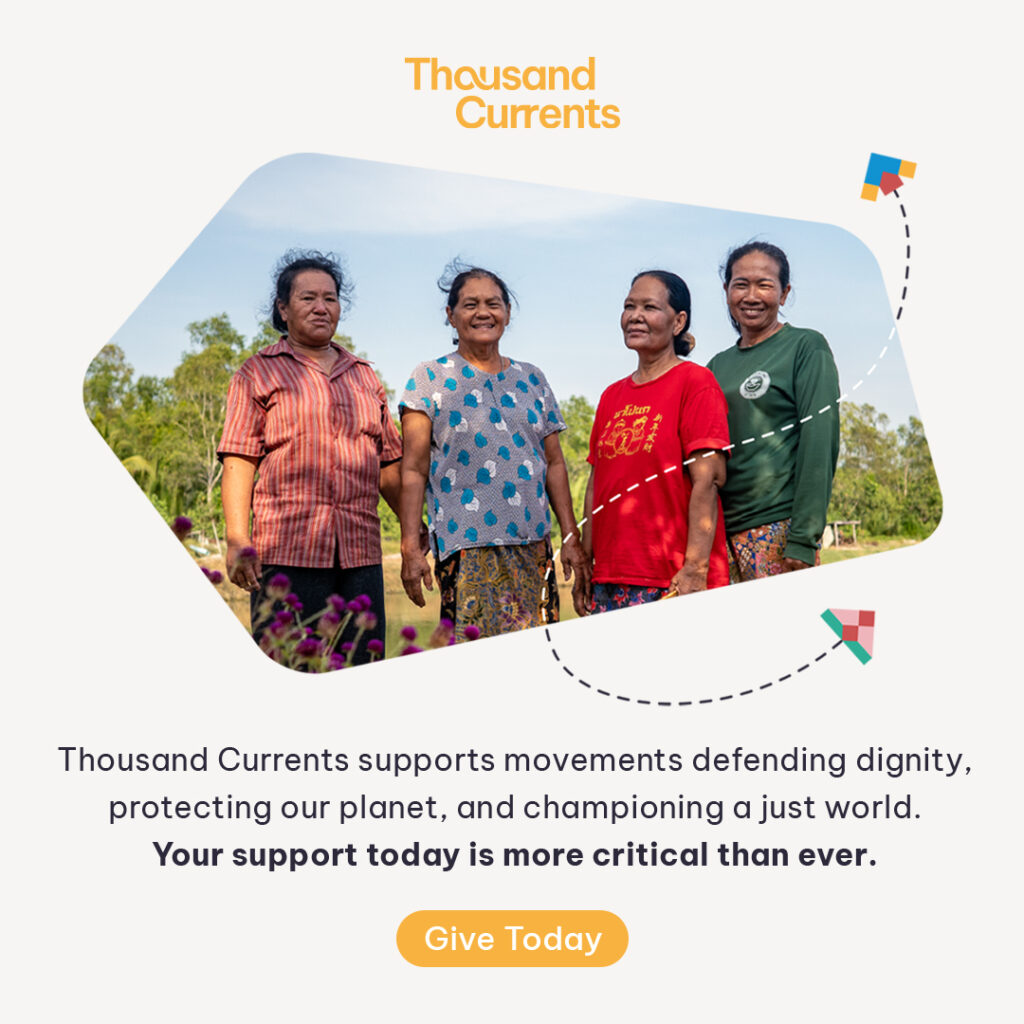Racism and philanthropy: Why we care about it and how we address it at Thousand Currents (Part 1)

What if diversity, equity, and inclusion in philanthropy were a reality, not a far off ideal?
What if we could change the narrative from “making a difference” to “here’s how transformation really happens and why we need you”?
What if our organizations’ leadership mirrored the world, not the elite few?
These are the questions with which we walked into our interview as part of the Tiny Spark podcast’s coverage on racism and philanthropy and international aid for Nonprofit Quarterly. You can find a link to the podcast and listen in here, or on iTunes, Stitcher, or Spotify.
As an organization founded on over 30 years of grantmaking based on learning, humility, and trust, we at Thousand Currents are not immune, nor phased by fundamentally uncomfortable questions, including those surrounding racism, colonialism, imperialism, and white supremacy.
Which is why we fundamentally believe that it is a hopeful and exciting time of history to be working in philanthropy. Yes, big changes are all around us. People from elite and privileged backgrounds are being invited to give up access to resources, control of resources, and opportunities that usually arrive at their doorstep.
At Thousand Currents, we have been asking, what does it mean to share power?, for a long time. We were really happy to share what we’ve learned with Amy Costello, host of Tiny Spark, because our partners have always been our most important teachers on this topic.
We care so much about racism and philanthropy for a few reasons:
- The people who can best “solve” deeply-rooted social, political, and economic problems are the people whose lives are most affected by them. This requires us as Thousand Currents to step away from the usual role of “expert” or “changemaker.” Our first duty is to listen. Listening is about honoring each others’ dignity and supporting people to use their own power. For white folks, this means learning first to speak less and be willing to give up their own power.
- Thousand Currents has an explicit focus on funding and supporting people who are dismantling the structures that perpetuate poverty, including inequality, racism, xenophobia, marginalization, homogenization, and injustice. We understand racism as a historical framework operating today in our lives and in our societies, the vestiges of colonial and imperial world views that continue to shape our economic and political systems. Our and our partners’ political analysis requires us to connect the local to global and then back again. Racism has been and is a central part of what it takes to consolidate wealth all around the world and maintain power and control of finance, including philanthropic capital.
- Thousand Currents is continually experimenting with what it means to collectivize efforts with people with divergent lived experiences. As a result, we also continually recreate our work as we learn, and have learned intimately the difference between supporting a cause or an issue, an organization or a movement in our 33 years of operation. Our partners continually teach us how to protect humanity and to venerate love and courage. They are not development economists nor foundation heads. They are people around the world, who have faced regimes down, all the way down, before.
So how we address racism in our work at Thousand Currents? A few ways:
- Thousand Currents is led by a women of color, and we intentionally make hiring and governance decisions that reflect the world we want to see (and that it is).
- We are clear that our role is not to devise solutions to the world’s greatest challenges, nor lead movements, but to effectively move more resources to them. We are clear that we are not strategists or project/portfolio managers or technical experts, but we are focused on getting more money into the ecosystems that are social movements.
- We intentionally build trust within our relationships, to be able to have the uncomfortable conversations required to talk about wealth, power, and privilege. Trust and truth is necessary because the rearrangement of power needs more and more moments of realization and relinquishment by white people. We are clear that this discussion is not about political correctness or identity politics, but it is about acknowledging what it has taken for Black, Brown, Indigenous, LGBTQ people to stay alive as nations around the world have been and are being shaped.
Related Stories




